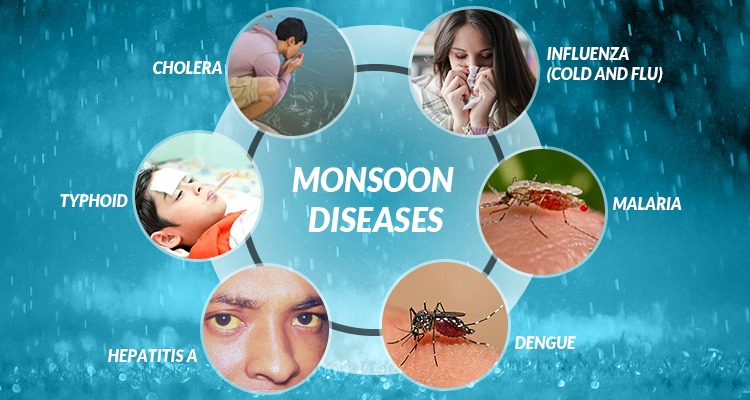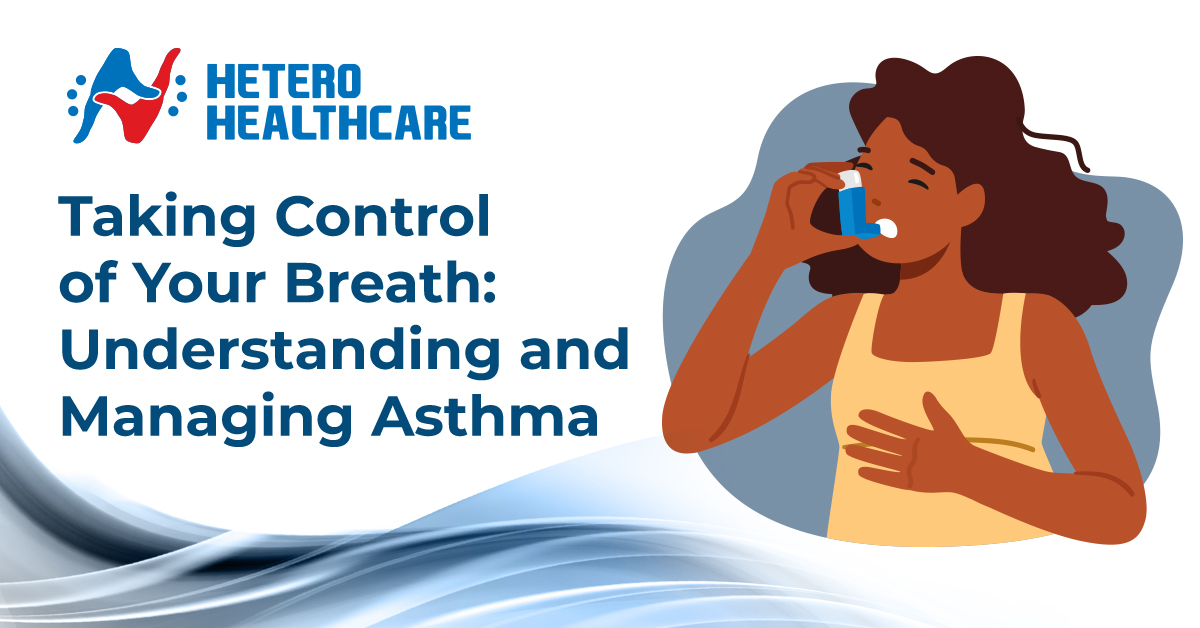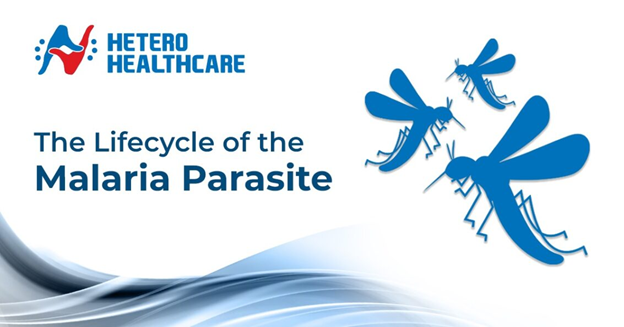Hetero Healthcare
10 Sep 2020

Monsoon season in India not only provides relief from the scorching heat of summer but also brings the risk of catching various communicable diseases. These monsoon diseases remain undiagnosed until some undesirable consequences occur. This is why it is important to diagnose and treat diseases early during the rainy season, as it can save lives. Developing, resource-limited nations are predicted to face a host of climate-related health consequences including vector-borne and water-borne diseases such as malaria, cholera, and dengue.
Here are some common diseases that are very prevalent in this season that you should be aware of. It is also advisable to understand the preventive measures of these diseases so that you and your family can take the necessary precautions.
| TYPES OF DISEASES DURING MONSOON IN INDIA | ABOUT THE DISEASE | SYMPTOMS |
| Influenza (Cold and Flu) |
|
Runny or stuffy nose, body ache, throat irritation, soreness, and fever. |
| Cholera |
|
Severe diarrhoea with watery stool (known as rice water stools) and vomiting which causes immediate water loss, electrolyte misbalance, and muscle cramps. |
| Typhoid |
|
Prolonged high fever, severe abdomen pain, headache, vomiting and sore throat. |
| Hepatitis A |
|
Jaundice (yellow eyes and skin, dark urine), stomach pain, anorexia, Nausea, Fever, Diarrhoea, and Fatigue. |
| Dengue |
|
Severe joint and muscle pain (myalgia), swollen lymph nodes, headache, fever, exhaustion, and rash. Hemoglobin count decreases drastically and if treatment is not provided can lead to death. |
| Malaria |
|
mild to severe, like fever with chills, headache, jaundice, severe exhaustion, and fluctuating state of consciousness, severe anemia, or even liver and kidney failure. |
Hetero Healthcare

Hetero Healthcare27 May 2024
The Thyroid: Understanding Your Body's Master Gland
The thyroid gland, a small butterfly-shaped gland located at the base of your neck, plays a critical role in regulating your metabolism.

Hetero Healthcare25 May 2024
Taking Control of Your Breath: Understanding and Managing Asthma
Asthma can feel like a constant battle for air, leaving you breathless and wheezing. But with knowledge and the right approach, you can take control of your asthma and live a full, active life.

Hetero Healthcare30 Apr 2024
A Comprehensive Guide to Malaria
Malaria, a mosquito-borne infectious disease, continues to pose a significant threat to global health. At Hetero Healthcare, we are committed to raising awareness about this preventable illness and empowering individuals with knowledge to protect themselves. This comprehensive blog delves into the causes, symptoms, and effective prevention strategies for malaria.

Hetero Healthcare30 Apr 2024
A Guide to Parkinsons Disease for Patients and Caregivers
At Hetero Healthcare, we understand the profound impact Parkinson's disease (PD) can have on individuals and their loved ones.